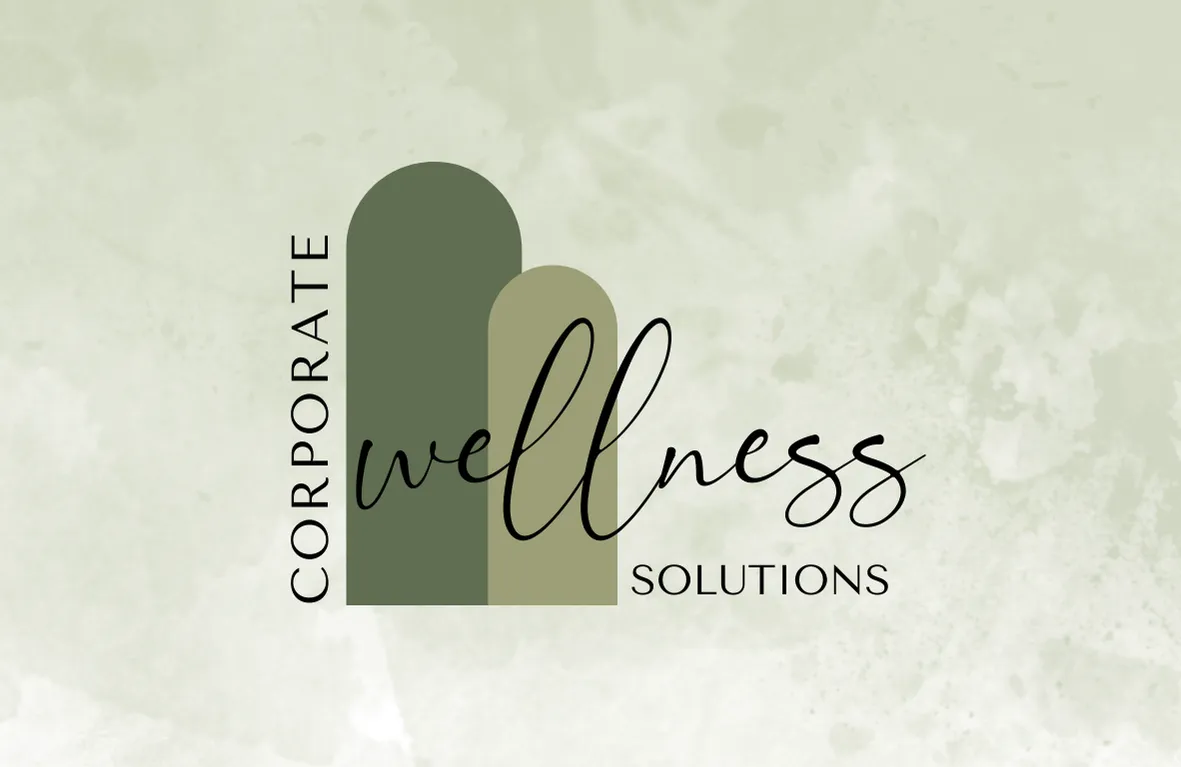Employer -Menopause friendly workplaces
Get Accredited
Welcome to the
Women’s Wellness Hub

How to make work menopause-friendly: don't think of it as a problem to be managed
For many, menopause conjures up feelings of embarrassment, hot flushes, mood swings and sleep disturbance. It doesn’t usually conjure up thoughts about the workplace.
Stressful work environments can exacerbate menopausal symptoms. Women who enjoy higher levels of support, on the other hand, report lower levels of menopausal symptoms.
Some employers think menopause hurts productivity and is therefore a reason to avoid employing older women. But not every woman experiences menopausal transition the same way and it is wrong to assume it will always have a negative impact on wor
More and more Australian women are facing a silent career killer. It can increase their dissatisfaction with work, their absenteeism and their intention to quit their jobs. Menopause is one of the last great taboo subjects in the workplace but its impacts are great – and it’s time we talked about it.
Menopause typically occurs in women around 51 years of age. Prior to this women also pass through a period of peri-menopause where symptoms are apparent. These include fatigue, hot flushes, sleep disruption, irregular and unpredictable bleeding, urinary issues and mood swings. In all, menopausal symptoms generally last from four to eight years.
This directly relates to the workforce in Australia because the participation of women over 45 years of age is steadily increasing, particularly in the 55-64 age group. Between 1999 and 2012, this group’s workforce participation rate grew by a staggering 23%
.
What do we know about menopause and work?
A large study of women over 40 working at Australian universities was conducted in 2013-14. It’s one of the few to examine this issue locally.
This research showed that menopause did not necessarily affect job performance. But there was a strong link between the severity of symptoms and reduced engagement and satisfaction with work – as well as a higher intention to quit work.
Unsurprisingly, these reactions can have negative impacts on career aspirations. A 2013 report, Older Women Matter: Harnessing the talents of Australia’s older female workforce, examined the issue of attracting and retaining older women in Australian workplaces. While not directly about menopause, this report argued that employers could reap significant benefits by examining their strategies and policies for employees in this demographic.
Studies overseas, particularly in the UK, have more comprehensively explored the link between workplace performance and menopause. It is generally agreed that women are often able to conceal their symptoms and manage their workloads. Yet they often do so at their own personal expense.
One study found that only a quarter of respondents felt comfortable enough to discuss their menopausal symptoms with their line managers. Most believed it was a personal and private matter. Other reasons for non-disclosure included the belief that it had no impact on their work, and their manager being male and being embarrassed.
The consensus then is that this important group of employees need support so that menopausal symptoms can be discussed and managed. That in turn means employees can be retained and developed. But how do employers make this happen?
Cultural influences
Features of the workplace culture and managerial styles stressful work environments can exacerbate menopausal symptoms. Women who enjoy higher levels of support, on the other hand, report lower levels of menopausal symptoms.
For some women menopause will present significant and long-term health episodes and may be covered under disability discrimination employment laws. It is also important to note that any medical information provided by a staff member is likely deemed sensitive information under the Privacy Act.
For other women, menopause was just seen as part of a broader “time of life” when many women feel energised, more free from caring responsibilities and ready to go in terms of their career.
Practical steps
There are a number of practical steps employers can take to create menopause-friendly workplaces:
Fans and easy access to temperature control were a common recommendation from our research.
Ability to work flexibly or from home during extreme weather or times when they were experiencing symptoms such as excessive bleeding or migraines.
Culturally supportive so women feel like they can reach out for support when needed.
Information ;provided about menopause – for both men and women – should be part of organisational health and wellness agendas. Book in well trained menopause trainers through Corporate Wellness Solutions. www.corporatewellnesssolutions.com.au
Cultural shifts
A shift in social attitudes can make menopause a positive experience,
Managerial systems should put menopause on the workplace agenda rather than considering it only when it becomes an “issue” or “problem”. Including menopause in occupational health and safety and human resource policies can also challenge hidden biases.
Finally, line management training is vital. All too often how menopause is dealt with in the workplace comes down to a supervisor’s personal experience and understanding. When managerial responses remain ad hoc and unpredictable, it is not surprising that 60% of women feel unable to discuss their menopausal symptoms with their line manager.
Don’t manage menopause
These steps are not just about alleviating symptoms. They are about avoiding signalling that women of a certain age are an inconvenience or less valued as employees.
So want to know the best way to support menopause in the workplace?
Provide ways to start the conversation in a positive way.
Encourage open and honest communication that does not automatically lead to discussion of performance.
Think about proactive practical steps that can accommodate symptoms.
It is about enabling a positive and productive work environment for those going through menopause, not “managing” menopause and its symptoms as a problem.
Get help to become a Menopause Accredited Business
Corporate Wellness Solutions is one of the leading Australian wellness organisations equipped to help businesses ensure better support for their staff experiencing perimenopause or menopause. They provide practical and expert training and resources to businesses to provide support to staff
experiencing menopausal symptoms at work and help managers and HR professionals to understand how they can provide the right support to their workforce. They help workplaces create an environment where everyone enjoys equal opportunity to achieve their best at work regardless of age, gender, or experience of menopause. Corporate Wellness Solutions compliance team also ensure compliance obligations are met and works with business to attain menopause friendly accreditation, which has enormous value on culture, staff retention, staff productivity and morale.
Book a menopause wellness education session through highly skilled trainers - www.corporatewellnesssolutions.com.au
GET YOUR BUSINESS MENOPAUSE ACCREDITED NOW.


Women's Wellness Hub Directory
Thank you to our wonderful sponsors and ambassadors

Beware
10 Biggest Red Flags to Watch out for in Relationships
Dating someone new can be such a fun time in your life. Ideally, getting to know someone can be really exciting and establishing intimacy feels natural and easy. But for some people, as the relationship develops, you may start to notice little things that feel really “off”.
These uncomfortable behaviors—often called red flags—may start out small but can hint at future problems, so it’s important not to just ignore them or start to justify them. Everyone deserves to be in a relationship where they feel safe, respected, and valued — and that includes you.
What are red flags in a relationship?
Red flags in a relationship are warning signs that something might be wrong. Certain behaviors, actions, or attitudes might indicate a relationship is unhealthy or even harmful. They can be obvious, like physical abuse, or even subtle, like constant criticism.
Pay attention to these signals, because seeing unhealthy patterns before they become deeply ingrained can help you make choices that may prevent pain down the line.
Knowing what red flags to look out for can also help you make better choices about your relationship. You can decide whether to work on the issues with your partner or to end the relationship. No matter what you do, recognizing these signs can help you set boundaries and build healthier relationships in general. You’ll be able to recognize what's unacceptable so you can seek out partners who make you feel respected and valued.
10 biggest red flags
Recognizing red flags in a relationship is critical for your emotional and physical wellbeing, here are 10 of the most common ones to look out for.
1. They exhibit controlling behavior
This occurs when one partner tries to be in charge of the other’s actions, decisions, or interactions with others.
Exercising control over your social circle: Dictating your friendships, or placing limits on family visits
Monitoring your activities including checking your phone, emails or social media accounts without your permission
Making decisions for your about your life, for example your study, your courses, job, how you spend your free time or
Financially controlling you so that you lose your financial independence and access to your own money such as not letting you work, making you transfer your income to the other persons account or paying off their debts for them, the always ask for a 'loan' which is never repaid, they monitor your spending and give you an allowance.
2. Dishonesty, sneakiness and stonewalling
When communication isn’t open and honest and when your partner refuses to talk about certain topics, that could be a red flag.
They refuse to discuss really important topics which impact you too, avoid conversations about feelings, future plans or problems in the relationship
They often give you the silent treatment, withdraw communication to punish or manipuate you, ghost you for periods of time to make you feel anxious
They dont value or respect that you have an opinion or belittle your input.
3. You receive constant criticism from them
Notice if your partner frequently puts you down, makes you feel like crap about yourself, or undermines your confidence.
They make negative comments about your intelligence, looks, appearance, clothing choices.
They belitle your achievements downplaying or dismissing your successes and accomplishments
4. You’ve experienced abuse
Physical, mental and emotional harm a serious red flag that should never be ignored. For instance,
Harming you or threatening to harm you physically - including hitting, slapping, pushing, choking or any other form of physical violence
Stalking and monitoring you
Using guilt, fear or intimidation to control you
Yelling, name calling, defaming you
Sexually abusing you.
5. They have anger management issues
An inability to control anger, aggressive behaviour, which may be harmful and frightening.
Having frequent outburts, exploding in anger over minor issues or high conflict about things
Engaging in destructive behaviour such as throwing or breaking things
Making threats to harm you, your children, family, pets, your property
6. You’ve experienced gaslighting
This occurs when an abuser makes you doubt your own reality or feelings. It can include:
Denying things that happened causing you to question your memory or insisting events or converstations never took place which can make you feel unsure about your recollections or perceptions. You feel like you might "be going crazy" or "losing your memory."
Blaming you for your actions by shifting responsibilty for bad behaviour onto you and guilt tripping you into believing you are to blame for something you are not responsible for.
7. They display secretive behavior or keep things from you
Hiding things from you or being overly private about certain aspects of their life can be a sign that something is wrong. This might include:
Not sharing their phone or computer or being overly sensitive, secretive or protective of their digital devices.
Being vague about their whereabouts, giving unclear answers about where they have been or what they are doing.
Keeping financial secrets including hiding money, borrowing money from you, running up debts including gambling debts, in your name or jointly, or making large purchases from joint funds without your prior consent.
8. They have a substance abuse issue
Substance abuse can severely impact your relationship or your partner’s ability to function normally. Especially if:
They are intoxicated regularly - drunk, high or under the influence more than being sober
Spending more time choosing substances than spending quality time with you
Illegal drugs are being delivered or stored in you home or property.
Spending excessive joint money on supporting their addiction.
9. They’re dishonest
Dishonest behaviors can undermine the fundamental trust in a relationship.
Lying about important things including hiding significant money, information or events from you
Regularly breaking promises and not following through on commitments
They avoid answering your questions directly or get angry for asking about the issue or inconsistency.
10. They exhibit extreme jealousy
While a little protectiveness may be normal, extreme jealousy can be toxic.
They frequently accuse you of flirting or cheating
They monitor where you are, who you are with, and why at all times
They put your friends and family down and try to isolate you from seeing people and attend events and guilt you into staying with them instead of socialising.
Pay attention to how your partner's behavior makes you feel. If you’re frequently unhappy or scared, it might be time to reassess the relationship. Talk to friends, family, or one of our psychologists to help you see red flags more clearly.
If you are concerned and need support to discuss your concerns and way forward, make an appointment today with one of our team:
www.familycounsellingsupportnetwork.com or www.separtionsupportnetwork.com
This site is brought to you by Family Counselling Support Network
Book in directly with one of our professionals today

We are here to help

We are committed to protecting your personal information and respecting your privacy. This website uses cookies to analyze website traffic and optimise your website experience. By accepting our use of cookies, your data will be aggregated with all other user data.
DISCLAIMER: The material contained on this website is for general educational and information purposes only and is not a substitute for professional legal, financial, medical or psychological advice or care. While every care has been taken in the information provided, no legal responsibility or liability is accepted, warranted or implied by the authors or Family Counselling Support Network and any liability is hereby expressly disclaimed. For specific advice please contact us at [email protected]. All information contained on the website remains the intellectual property of Family Counselling Support Network and is for your personal educational use only. The information must not be reproduced or distributed without the express permission of Family Counselling Support Network.
Family Counselling Support Network acknowledges and respects the First Nations Custodians of the land where our offices stand, and where we work to help Australians. We pay respects to their Elders, past present and emerging, lore, customs and creation spirits. We recognise that these lands have always been places of ceremony, teaching, research and learning, and we acknowledge the important role Aboriginal and Torres Strait Islander peoples play in our community.
We are committed to providing an inclusive and accessible environment where people and communities of all identities and backgrounds are accepted, safe and celebrated.
Privacy Policy | Terms and Conditions




















